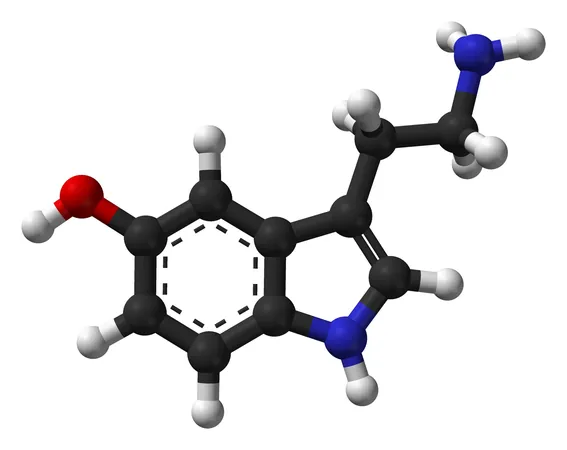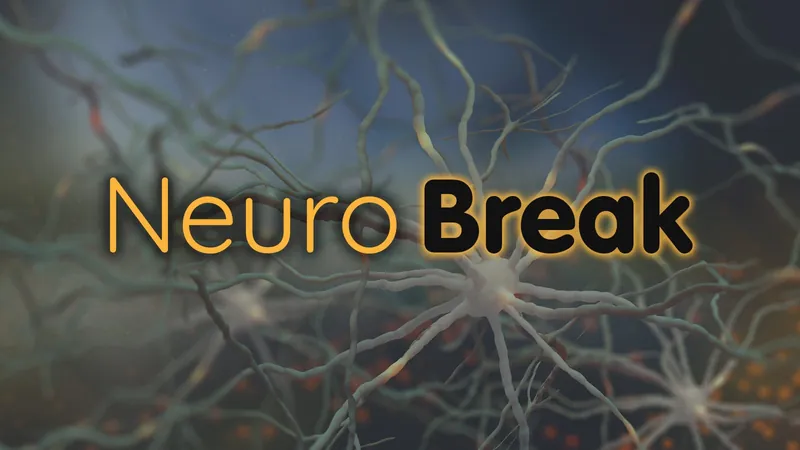
Breakthrough Study Reveals How Serotonin Levels Surge with Reward Anticipation!
2024-09-27
Author: Yu
Recent research has unveiled groundbreaking insights into the enigmatic role of serotonin, often dubbed the "happiness molecule." This neurotransmitter, which influences mood and behavior, has long been overshadowed by dopamine in discussions about reward response. While dopamine is known for its instant effects tied to rewards, a new study from Dartmouth flips this narrative by demonstrating that serotonin also plays a crucial role in anticipating rewards - and its levels are intricately tied to the perceived value of those rewards.
In a study published in *The Journal of Neuroscience*, researchers explored serotonin fluctuations in real-time as mice interacted with varying levels of enticing rewards, specifically different concentrations of beloved evaporated milk. Utilizing an innovative biosensor known as GRAB-serotonin, the team was finally able to measure serotonin release with unprecedented precision. This was achieved using fiber photometry, a technique that deploys light to gauge minute changes in fluorescence, revealing when serotonin is released in the brain.
Traditionally, the inability to monitor serotonin levels on such a quick timescale has left many questions unanswered in the field of neuroscience. While dopamine's role in encoding rewards has been well-established, the complex serotonin system – with its 14 distinct receptors acting as various "locks" for the serotonin "key" – has remained relatively mysterious. The Dartmouth study highlights that serotonin not only aids in mood regulation but actively adjusts in response to the expectation and magnitude of rewards.
The study’s findings are particularly exciting: when mice consumed larger amounts of the reward, serotonin release spiked. Similarly, when the mice were thirsty and received water, a significant serotonin signal was observed. Conversely, a diminished signal was seen when the mice were already satiated. These fluctuations indicate that serotonin does not merely react to the reward but is conditioned by the context and anticipation surrounding it.
Co-author Mitchell Spring, a postdoctoral researcher at Dartmouth, emphasized that the ability to manipulate serotonin signals could lead to a deeper understanding of how it influences behavior and mood, especially in the context of antidepressant therapies which often target serotonin pathways. Despite their effectiveness, the precise mechanisms of these selective serotonin reuptake inhibitors remain underexplored.
Moreover, the research focused on the dorsomedial striatum – a region linked to dopamine, decision-making, and impulsivity – underscoring a fascinating intersection between serotonin and dopamine signaling in the brain.
This pivotal study not only sheds light on the complex interactions of neurotransmitters during reward processing but also opens new avenues for exploring therapeutic interventions for mood disorders. With serotonin now recognized as a pivotal player in reward anticipation, the future of neuroscience is poised for even more discoveries that could redefine how we understand happiness and motivation.
Stay tuned as we unravel more layers of this groundbreaking research that challenges long-standing assumptions in the field!



 Brasil (PT)
Brasil (PT)
 Canada (EN)
Canada (EN)
 Chile (ES)
Chile (ES)
 España (ES)
España (ES)
 France (FR)
France (FR)
 Hong Kong (EN)
Hong Kong (EN)
 Italia (IT)
Italia (IT)
 日本 (JA)
日本 (JA)
 Magyarország (HU)
Magyarország (HU)
 Norge (NO)
Norge (NO)
 Polska (PL)
Polska (PL)
 Schweiz (DE)
Schweiz (DE)
 Singapore (EN)
Singapore (EN)
 Sverige (SV)
Sverige (SV)
 Suomi (FI)
Suomi (FI)
 Türkiye (TR)
Türkiye (TR)